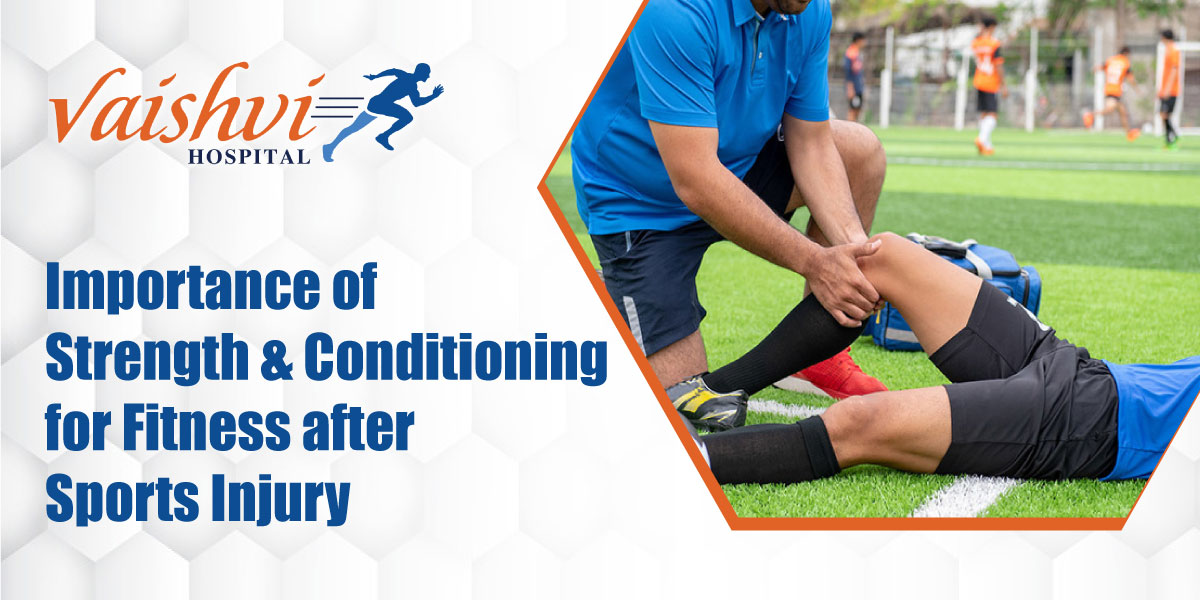
17-Feb-2022
A strength and conditioning coach's job is to ensure that an athlete is well-prepared for success in their chosen sport. A physiotherapist, sports coaches, athletic trainers, sports psychologists, physicians, strength and conditioning coaches, and a sports nutritionist are all members of a sports team.
Traditionally, an athlete would proceed from the rehabilitation environment to the strength and conditioning coach for a particular return to sports training under the supervision of a physiotherapist, sports therapist, or athletic trainer. The strength and conditioning coach's strategy and tactics will be defined by the ailment or weakness being addressed; strength, power, speed, endurance, and metabolic capacity.
Strength and conditioning training improves the musculoskeletal system's strength. As a result, it can assist avoid injury and aid in the recovery of an injury while in rehabilitation. Lower body power development is critical for an athlete's total performance in sports that require the triple extension (hip, knee, and ankle) action to be completed.
You tend to work the muscles that are most typically employed in that activity when you practise a given sport. This exposes your other muscles to weakness, perhaps increasing your risk of injury. The greatest method to avoid this type of specialised muscle weakness is to cross-train.
Muscle imbalances occur when one muscle group gets significantly stronger than the opposite muscle group. If your hamstrings grow in strength, your quadriceps may become overly weak in comparison. Not only does this cause the weaker muscles to fatigue more quickly, but the stronger muscle group's forceful contractions may also cause harm to the weaker muscles. Straining muscles or torn ligaments can result from muscular imbalance.
When your body is aligned, you may easily engage in high-intensity physical exercise without experiencing any negative consequences. Muscles, bones, ligaments, and tendons that are misaligned with respect to one another, however, can no longer work in unison. Strength training entails smooth motions that produce excellent body alignment, lowering your injury risk dramatically.
Have you ever gone to a coach asking for help to work on your game? This can be tough to address for many people. How do you get faster at running, throwing, or hitting? With the assistance of a sports conditioning expert. These professionals have a thorough understanding of how the human body functions and can create programmes that will help it perform better in a healthy manner. Sports Conditioning programs will benefit you in:
Athletes in any sport need to spend time in the weight room. While it is critical to your on-field performance to build and strengthen muscles, you run the danger of injuring yourself. A sports conditioning professional will show you how to lift weights in various positions with optimal form and technique.
Athletes are prone to injuries both inside and outside the weight room. Even the most frequent injuries can be avoided by maintaining muscle strength and flexibility in the tendons and ligaments that support them. Your sports conditioning specialist will create an exercise regimen that targets the muscles you utilise the most in your sport.
To be successful in sports, you need a variety of skills, some of which you are born with. These four elements, however, affect every athlete in some fashion at some point:
Strength: We can't improve our athletic performance if we don't have strength.
Balance: You can maintain control over how your body moves if you have a feeling of balance.
Agility: Athletes who are agile are able to move quickly and gracefully.
Speed: Every athlete wishes to improve their speed! On any athletic team, speed is an advantage.
Flexibility: Athletes who acquire optimum flexibility, function better compared to the athletes who are less flexible, as their flexibility provides smooth ROM around the joint making the movement more qulaitative.